With a tight vote predicted on 14 October, the PSA CPSU NSW
is urging its members to support the Voice to Parliament.
PSA CPSU NSW Aboriginal Council Chair Darrell Brown sums it up: “I’ve spent my career and devoted my life to advancing opportunities for Aboriginal people. I’ve done this being employed by both the state and commonwealth governments, and I’ve used that opportunity to culturally influence decision making to better meet the needs of my community.”
Mr Brown, a Training Coordinator at the Department of Education, said: “The Voice will give the Australian community 65,000 years of wisdom and knowledge.
“Saying Yes in this referendum will not only give long-overdue recognition to, but also confirming Aboriginal and Torres Strait Islander peoples as the First Peoples of Australia in the Australian Constitution.
“I can’t think of a better reason to say Yes.”
The PSA CPSU NSW Aboriginal Council recently held meetings in Canberra with Federal politicians to support the Voice, letting them know it will be state governments and organisations delivering the improvements a Yes vote will bring.

The story so far
The PSA CPSU NSW is among the first Australian unions to have an Aboriginal Council. A fitting example of how the Voice to Parliament will work, the PSA CPSU NSW Aboriginal Council gives advice to the union’s decision-making body, the PSA CPSU NSW Central Council and Executive. Central Council takes the Aboriginal Council’s advice into consideration when making decisions that affect First Nations members. However, it is not bound by this advice.
In May 2023, the PSA CPSU NSW Aboriginal Council met and made a decision, the union should back a Yes vote in the upcoming referendum on a Voice to Parliament on ssues affecting Aboriginal and Torres Strait Islander people. Central Council agreed.
One of the first parts of the acceptance speech on the 22 May 2022 election night by new Prime Minister Anthony Albanese was a commitment to hold a referendum on the Voice to Parliament.
The idea was not new. The present proposal dates back to a 2015, when a 16-member Referendum Council was appointed by then Liberal prime minister Malcolm Turnbull and the Labor Party’s then leader Bill Shorten. About two years later, the council released a report advocating that “a referendum be held to provide in the Australian Constitution for a representative body that gives Aboriginal and Torres Strait Islander First Nations a Voice to the Commonwealth Parliament”.
 However, by the time the report had come out, Scott Morrison was Prime Minister and the process hit a dead end. Mr Morrison opposed the referendum, instead announcing an interest in an advisory body that was not constitutionally enshrined.
However, by the time the report had come out, Scott Morrison was Prime Minister and the process hit a dead end. Mr Morrison opposed the referendum, instead announcing an interest in an advisory body that was not constitutionally enshrined.
It was only after Mr Albanese led the Labor Party to a win over Mr Morrison’s government that the idea of a referendum was resurrected.
While the Yes vote gained considerable early support, opposition from Liberal Party leader Peter Dutton and a wave of online disinformation have seen the vote tighten. In addition, there have been some Aboriginal voices opposing the vote, including Liberal National Party members Warren Mundine and Jacinta Nampijinpa Price, Blak Sovereignty supporters such as former Greens Senator Lidia Thorpe, and fringe conspiracy theorists such as Josephine Cashman and Anthony Mundine.
However, the PSA CPSU NSW Aboriginal Council is urging all Australians to support the Yes vote.
Council member Shanice Leadbeatter said the Voice is “a sign that the people of this country validate and acknowledge that First Nations people must have a seat at the table to improve Indigenous lives.”
Ms Leadbeatter, who works in Community Corrections, said determining issues that involve Aboriginal and Torres Strait Islander people need more input from those directly affected.
“I hope this will allow us to take ownership and be accountable of our lives and the direction they go without dictatorship by non-Indigenous citizens of our country,” she said. “I hope this will initiate and motivate cultural curiosity and support independent research for the true history of our nation. I hope this will be the beginning of true reconciliation, growth and inclusion.”
Aboriginal Council Delegate Hilton Donovan, who works at the Department of Education, believes the union’s support for the Voice is important for Aboriginal members.
“As a collective, the PSA CPSU NSW should support it as it gives us a voice,” he said. “It can be a support mechanism for all members, particularly Aboriginal members.”
Aboriginal Council Delegate Amber Anderson said the Voice will also “mean recognition and respect of 65,000 years of Indigenous culture for the first time in Australia’s 122-year-old constitution. It will mean that our First Nations people will have an input in decisions being made for them by having a voice in parliament.”
Capital ideas
At the Canberra meeting, PSA CPSU NSW Aboriginal Council members met with Aboriginal Affairs Minister Linda Burney, who praised the union movement “for its support of the Voice”.
Ms Burney said she believed opposition to the Voice from Mr Dutton was due more to his determination to win an issue over the more popular Mr Albanese rather than through any ideological convictions.
There are many Liberal Party politicians, including NSW party leader Mark Speakman, who support a Yes vote.
Ms Burney said the debate has unleashed a wave of incorrect information to confuse voters.
“Some of the misinformation, apart from the personal insults, is just nuts,” she said, pointing out the drop in debate standards had been seen during the 2017 Marriage Equality debate.
PSA CPSU NSW President Nicole Jess said “the abuse she is facing” gave her more respect for the role Ms Burney was playing as a high-profile face of the campaign.
Assistant Treasurer and Minister for Financial Services, Stephen Jones, attended the meeting to hear from Councillors about issues around Aboriginal people and superannuation.
 Darrell Brown brought up the reduced life expectancy of Aboriginal people in Australia and how it affects their ability to access superannuation.
Darrell Brown brought up the reduced life expectancy of Aboriginal people in Australia and how it affects their ability to access superannuation.
“People getting to retirement, if they get to retirement, don’t have long to access their superannuation,” he said.
Mr Jones agreed. He said a trip to northern Australia also alerted him to a need to broaden recognition of kinship in regards to superannuation.
The Minister said the Labor Government also had the funeral insurance industry’s predatory practices towards Aboriginal people in its sights. He said the non-payment of superannuation was also being addressed.
“I’m keen to work on improving the operations of the superannuation system, but I am not taking my eye of the game of closing the life expectancy gap,” said Mr Jones.
Federal Health Minister Mark Butler said he was “deeply concerned about the effect the Voice debate is having on mental health of Aboriginal and Torres Strait Islander people: worse even than marriage equality”.
Susan Anderson who works at NSW Health told the Minister that unequal access for Aboriginal people to health services was contributing to what he called a “stubborn, yawning [life expectancy] gap of about eight years”.
Mr Butler said the Government was focusing not just on the length of life, but the quality, too.
“We are looking at health issues that hinder your ability to live long and happy lives,” he said. “I can’t think of a more important part of the Voice debate.”
PSA CPSU NSW General Secretary Stewart Little said improving health outcomes is a vital part of the debate on the Voice to Parliament.
Erica Smits, who is the Deputy Chair of the PSA CPSU NSW Aboriginal Council, said state and federal government bodies, will receive better advice regarding Aboriginal and Torres Strait Islander people.
 “The Government will get better quality information delivered directly by Aboriginal people,” said Ms Smits, who is Manager of Communications and Engagement, Aboriginal Cultural Heritage at Aboriginal Affairs NSW. “That will result in better laws.
“The Government will get better quality information delivered directly by Aboriginal people,” said Ms Smits, who is Manager of Communications and Engagement, Aboriginal Cultural Heritage at Aboriginal Affairs NSW. “That will result in better laws.
“People ask me why would you vote Yes? For me, it gives us a foot in the door, which will start conversations and start the process.
“At the moment we don’t even have a toe in the door. We are not even at the table.”
“Anything is better than nothing.” Another Council Delegate, Lisa Kennedy said the Voice will lead to better delivery of housing services for Aboriginal people.
“It will support me in my work,” said Ms Kennedy. “It’ll be deadly.”
PSA CPSU NSW Aboriginal Council Delegate Jack Mahoney said the Voice will place “a cultural lens” around a decision-making process that has too often failed Aboriginal people in Australia.
“My view is that we need a seat at the table,” said Mr Mahoney. “We need a fair playing field, as the gap is too wide between Aboriginal and non-Aboriginal Australians. A Yes vote will give us that seat at the table.”
Federal Environment Minister Tanya Plibersek said the Government gets “better results in environmental management with Aboriginal people involved, as they have looked after the environment for 65,000 years.”
The Minister said more needs to be done to get First Nations people in top- tier roles.
“In the past lip service was paid to Aboriginal and Torres Strait Islander people’s involvement in national parks,” she said. “We will be pushing for career paths rather than just casual positions.
“I want to make sure Aboriginal people have a pathway to future careers, not just as Aboriginal Rangers but as managers.”
Member for Macarthur, Mike Freelander, asked the PSA CPSU NSW Aboriginal Council, “What can I do for you?”
Mr Freelander, who is a general practitioner, talked about a journey he took to the Kimberley region of Western Australia and to the Northern Territory where he said he saw “a dire need for aged and disability care in Aboriginal communities”.
“We are at a tipping point in indigenous issues at the moment,” he said. “Health is a big one. COVID taught us that. We made a lot of mistakes, but we learned lots of things.
“I’m still optimistic about the Voice.” Mr Freelander was asked about the Labor Government’s plans to better deliver services On Country with family, rather than taking people to faraway city facilities for care. Ms Smits added that even getting access to health services on the Central Coast can be tough.
 In response, Mr Freelander talked about cutting the number of people being flown from the Kimberley to Perth for health matters.
In response, Mr Freelander talked about cutting the number of people being flown from the Kimberley to Perth for health matters.
NSW Health’s Ms Anderson told Mr Freelander that even parts of NSW were facing some food security issues, and that she had seen underweight babies resulting from underfed mothers.
The MP replied that he was a “great believer in school food programs”.
PSA CPSU NSW Senior Vice President Juliette Sizer said a school food program was part of a PSA federal parliamentary submission on education.
Secretary of Unions NSW, Mark Morey, dropped into the meeting to confirm that unions across the state were supporting the Voice.
“We are making sure that we get the Voice up,” he said, claiming the challenge was to win over undecided voters, “just like at conventional elections”.
Mr Morey said work needs to be done in outer suburbs, where Yes campaigners needed to give voters clear, concise information that focuses on the positives a 65,000-year-old culture brings to Australia.
“This is an opportunity for Aboriginal people to work with the government of the day and reset and accept the invitation to evaluate and explore better ways of doing things in the future,” said PSA CPSU NSW Aboriginal Liaison Officer Ricky Walford.
 “By putting it in the constitution, then all parties are committed and accountable to work together to improve not only the lives of Indigenous Australians, but all Australians. There will be more accountability for Aboriginal people to accept responsibilities for their own destiny.”
“By putting it in the constitution, then all parties are committed and accountable to work together to improve not only the lives of Indigenous Australians, but all Australians. There will be more accountability for Aboriginal people to accept responsibilities for their own destiny.”
Another Delegate, Belinda Hall, said: “Vote yes for unity, hope and to make a positive difference. Voting yes is about recognition. Recognising Aboriginal and Torres Strait Islander people in our Constitution and paying respect to 65,000 years of culture and tradition.”
Aboriginal Council Delegate Nicole Evans urged members to find the right information on the vote rather than relying on often inaccurate social media material.
“There have sadly been a lot of racist conversations unleashed by this debate,” she said.
Aboriginal Council Delegate Skye Munro said the “idea has been a long time coming” and implores her fellow union members to vote Yes.
“It is important to vote Yes. We need to get this thing over the line.”


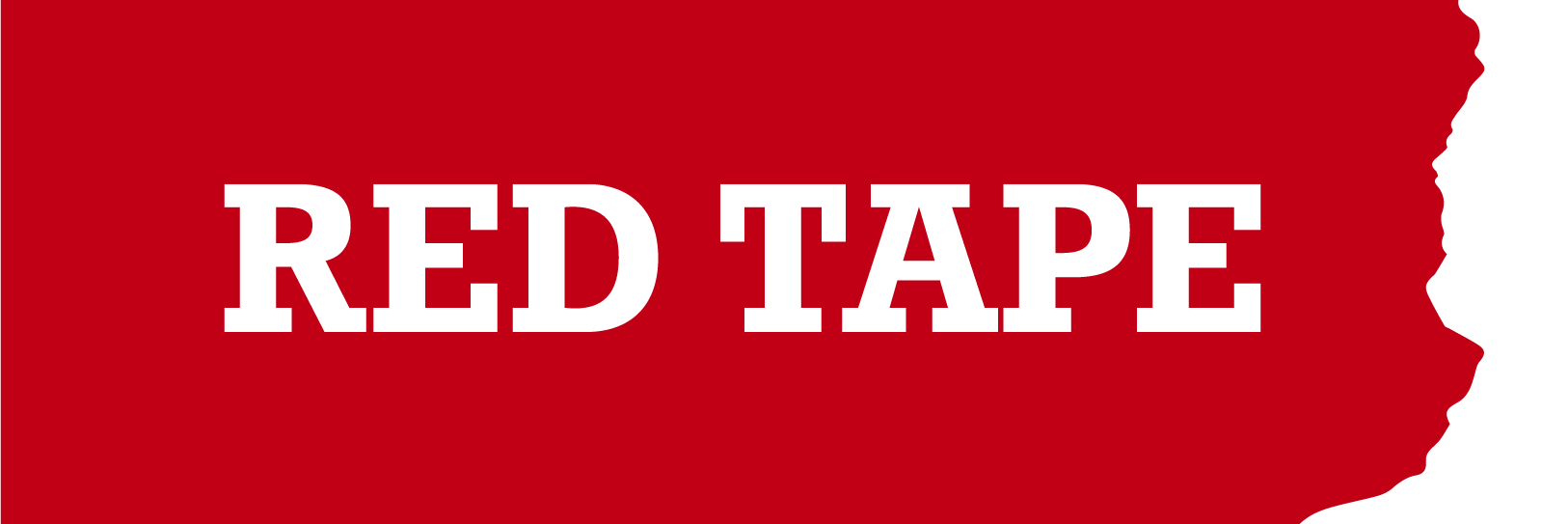

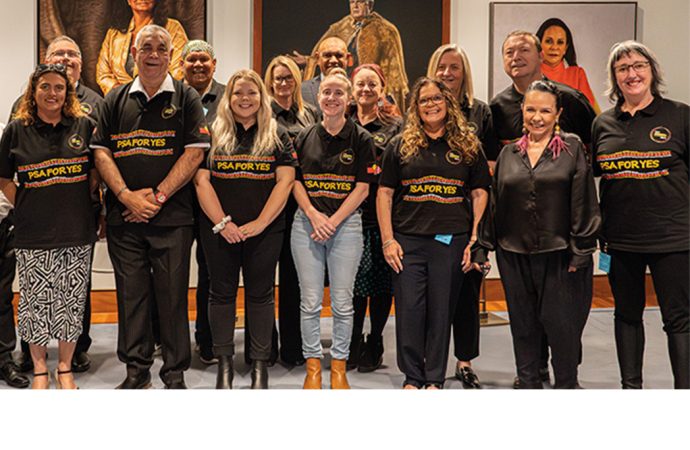
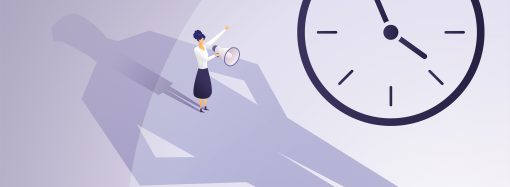
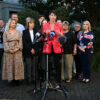

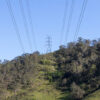
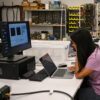
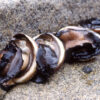
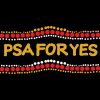
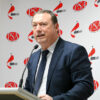

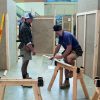
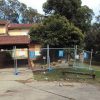
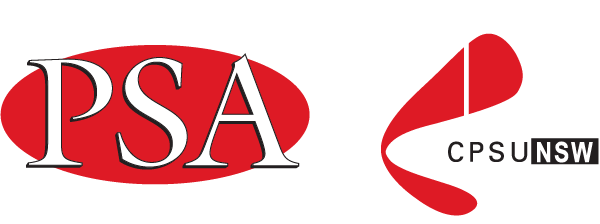
Leave a Comment
Your email address will not be published. Required fields are marked with *